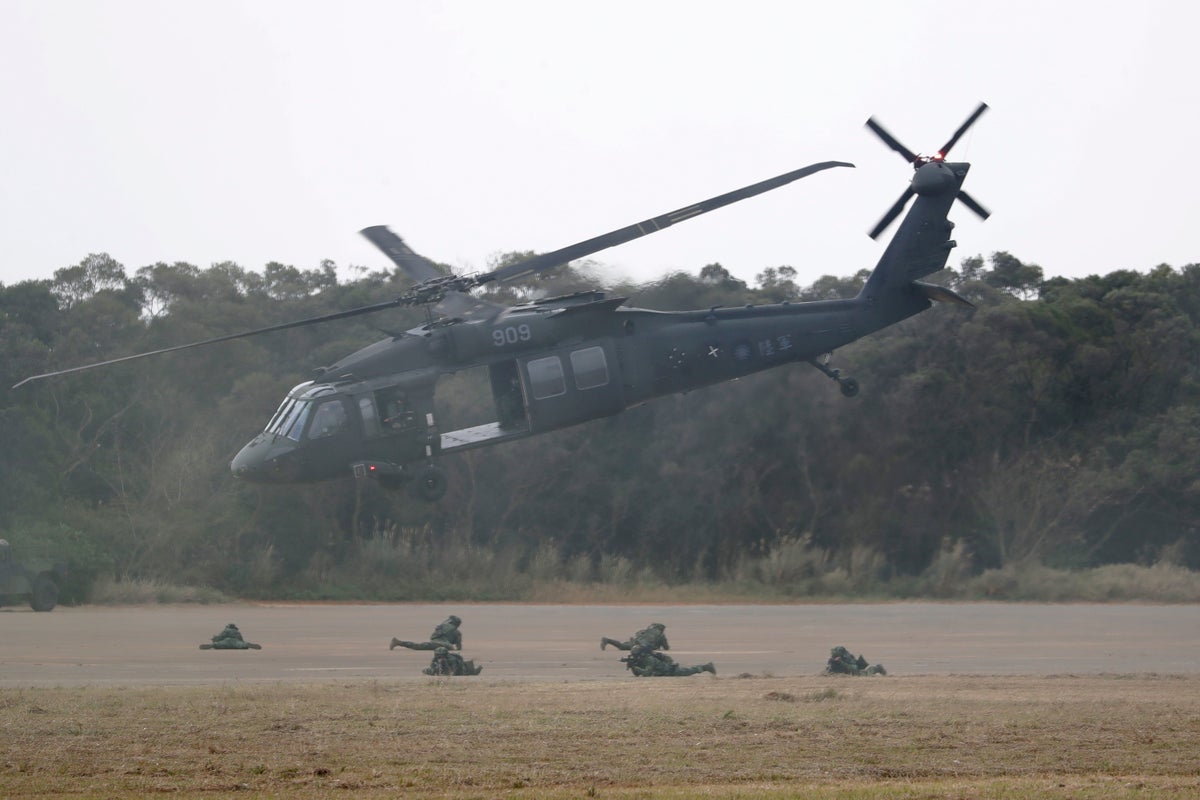
Taiwan began three days of military drills on Tuesday as concerns rose over potential cuts to the defense budget due to legislative wrangling between the island's two major political parties.
The drills began in the north with tank maneuvering at a base in Hsinchu featuring outmoded CM-11 tanks, which are gradually being replaced by newly purchased Abrams M1A2T from the U.S. The replacement marks a huge upgrade despite some complaints over the weight of the new tanks and their likely effectiveness at preventing a possible Chinese landing.
Troops arrived on armored personnel carriers, while Apache and S-70 helicopters whirled overhead, providing reconnaissance and covering fire.
With the equipment Taiwan currently operates, the communication officer is on the ground to coordinate airborne attacks, said Army Captain Chuang Yuan-cheng of the 542 Armored Brigade in Hsinchu county just south of the capital of Taipei. That allows them to guide the helicopters so that “ground fire and airborne fire are synchronized,” Chuang said.
On Wednesday, the army will show off its Patriot III anti-missile system aimed at countering one of China’s most potent weapons against the island of 23 million. And on Thursday, anti-submarine exercises will be held off of Taiwan’s largest port of Kaohsiung, considered China's best conduit for resupplying its troops should it establish a beachhead in the heavily defended region.
The annual drills are held in the run-up to the Lunar New Year holiday to reassure the population of Taiwan’s ability to meet China’s threats and to boost recruitment. Taiwan has a backlog of orders from the U.S. for about $20 billion in weapons systems, while it upgrades its M-16 fighters and develops its own submarines. It has also extended compulsory military service to one year.
However, the government has warned that new legal amendments being considered could force a 28% cut in the defense budget by altering the way funds are distributed between the central and local governments.
That in turn could reduce the willingness of the U.S. and its allies such as Japan and the Philippines to assist Taiwan in the event of an armed clash with China, National Security Council Secretary-General Joseph Wu told legislators last month.
The legislation is being pushed by the main opposition Nationalist Party, which has joined with the tiny Taiwan People's Party to oppose the ruling Democratic Progressive Party's legislative agenda.
Taiwan currently spends about 2.4% of its GDP, or roughly $20 billion, on the military annually.
China has responded furiously to all U.S. arms sales to Taiwan, saying unification with the island is inevitable and warning that Washington is “playing with fire.” However, apart from regularly sending planes and warships into areas near the island, it has done little more than blacklist companies and executives involved in the production and sales of such equipment.
Neither military intimidation, economic coercion nor appeals to their common Chinese ancestry seem to be working on Taiwan's population, the vast majority of whom favor the current status of de-facto independence.







